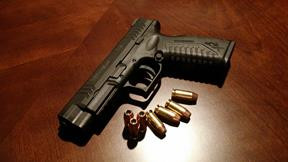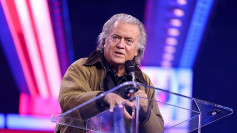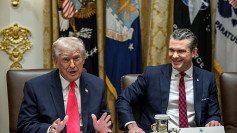United States President Joe Biden addressed the nation from the White House a day after a gunman killed four people at a hospital in Tulsa, Oklahoma, vowing to pressure Congress to enforce new gun control measures.
The proposed measures will include reimposing the assault weapons ban, universalizing background checks, and instituting so-called red flag laws, which make it easier for authorities to declare that troubled individuals can be barred from possessing guns.
"Firearms and high-capacity magazines must be outlawed," Biden said. "And if we can't outlaw assault weapons, we should raise the buying age from 18 to 21."
Background checks, safe storage rules, and red flag legislation should all be strengthened, the President said, who also called for the repealing of the exemption from responsibility that gun makers have. "Take action to address the mental health issue," he said.
On Capitol Hill, where a bitterly divided Senate is trying to achieve a majority on steps far more modest than the ones Biden envisioned on Thursday night, the ambitious proposal is guaranteed to face headwinds.
The president's speech, which had been made public earlier in the day, had a strange familiarity to it, according to observers.
Last month, Biden delivered a similar statement to the nation after a racist killing in Buffalo, New York, claimed the lives of 10 people, and again in May, after a shooter killed 21 people at an elementary school in Uvalde, Texas.
"How much more bloodshed are we willing to endure?" Biden asked the same question on Thursday that he did after the Uvalde massacre, which killed 19 children and two teachers and shocked a country used to gun violence.
Since Uvalde, there have been 20 mass shootings (defined as shootings with four or more victims), according to the president. This year, there have been more than 18,000 gun-related deaths in the United States, greatly exceeding the average in other affluent countries.
Biden acknowledged that none of the worst mass shootings in recent American history - Columbine, Sandy Hook, Charleston, Orlando, and Las Vegas - had prompted the U.S. Congress to enact gun control laws.
When asked if conservative caricatures depicting him as an anti-gun madman were accurate, he responded: "That can't be true this time. Lawful gun owners' culture and tradition, as well as their concerns, are respected by me."
Conservative Supreme Court Justice Antonin Scalia responded by saying: "Also, the Second Amendment is not absolute like all other liberties."





